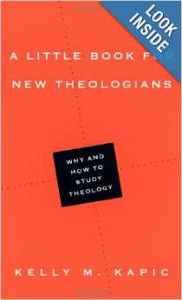Marcus Buckingham, in his book The One Thing You Need to Know, writes about Donald Brown and his work on understanding universal needs and fears. Brown discovered that all societies, though they each have their uniqueness in regards to language and culture, have a shared nature.
Though Brown counts up to 372 human universals, Buckingham distills them down to 5. These 5 are paired into what we fear and what we need. Here are the 5…
1. Fear of Death — The Need of Security. All societies have a fear of death and have laws against murder and suicide.
2. Fear of the Outsider — The Need for Community. In all cultures, children fear strangers. All societies also make distinctions between those who are a part of the group and those who are not.
3. Fear of the Future — The Need for Clarity. Societies are anxious about the future. Many cultures give prestige to those who can predict the future.
4. Fear of Chaos — The Need for Authority. All cultures have a story of how the world came to be. All also have a desire for authority and to have someone in charge.
5. Fear of Insignificance — The Need for Respect. In every society there is a craving for prestige and the respect that comes with it. There is also a concept of acquiring a positive self-esteem.
What needs to be emphasized regarding these fears and needs is that they are, in fact, universal. Regardless of nation, people, or race, all societies have some sort of fear of death, outsiders, the future, chaos, and insignificance. Buckingham writes,
The fact that these universals exist imply that all humans share a common experience, we share common virtues and vices, and therefor that, if we are inquisitive enough, if we listen closely enough, we should be able to emphasize with and understand one another (p. 136).
For believers in Christ, we trust that the answer to these fears is the gospel. But before we dive into how the gospel works at dissolving these fears, I think it’s important to realize how, according to Tim Chester, they “offer a point of connection with people, a hook, an opportunity to engage.” He writes that “we need to connect the gospel with the specifics of people’s lives rather than, or as well as, starting with big metaphysical questions.”
We understand the fears of others because we have those same fears ourselves. We understand the need for security, community, clarity, authority, and respect as they are the same needs as those we work beside. The only difference in us, as Christ followers, is that we have begun to trust in the gospel as the salvation from our fears and the fulfillment of our needs.
But though we place our faith in Christ, we still struggle. We are not immune to fear or doubt. After all, we are not super saints, but normal ordinary people in need of saving. And as a result, we are able to identify with those around us and to offer the gospel to others at their point of need.
(Specifics on how the gospel speaks to these 5 fears will be found in tomorrow’s post.)
1 Comment







